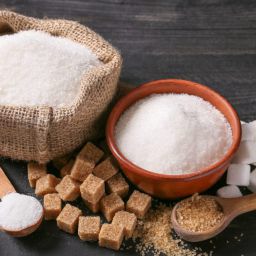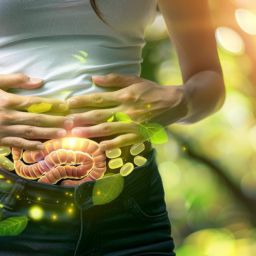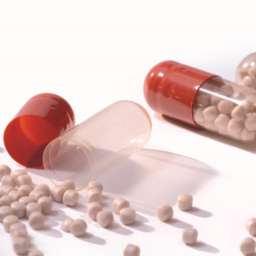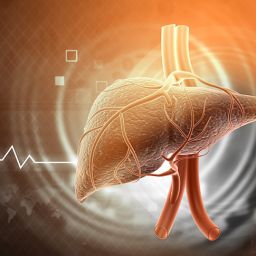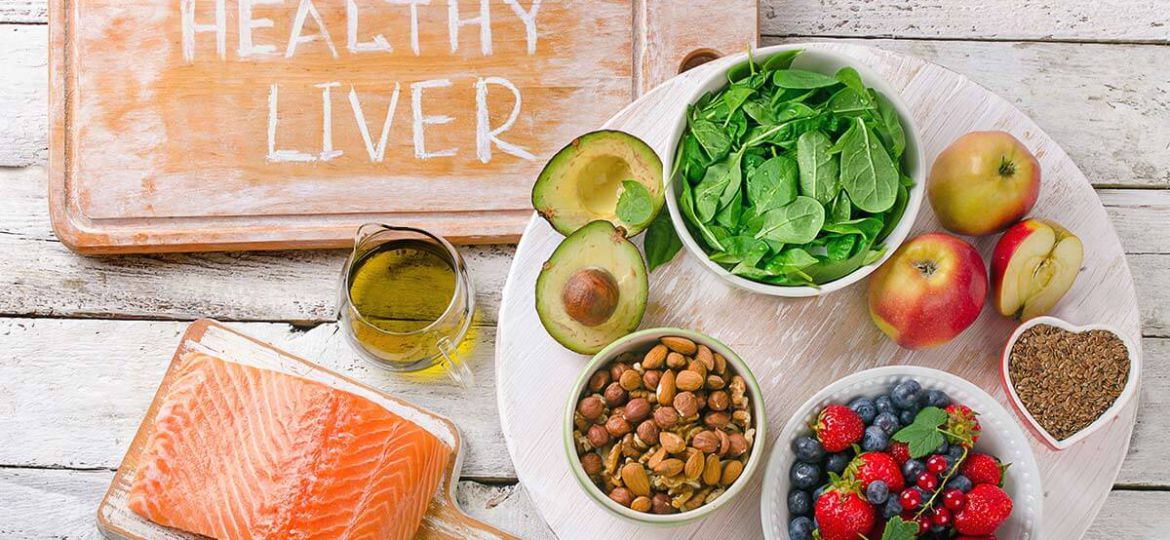
1. Leafy Greens
Leafy greens, such as spinach, kale, collard greens, and arugula, are some of the best foods to support liver health. These vegetables are rich in chlorophyll, which helps detoxify the liver by neutralizing heavy metals, chemicals, and pesticides in the body. Additionally, leafy greens are packed with fiber, which helps support digestive health and aids in the elimination of toxins through bowel movements.
Kale and spinach, in particular, are rich in antioxidants like vitamin C, which help combat oxidative stress and reduce inflammation in the liver. The high fiber content of leafy greens also promotes the proper functioning of bile, a digestive fluid produced by the liver that helps break down fats.
2. Garlic

Garlic is not only a delicious addition to many dishes, but it also provides significant benefits for liver health. Garlic contains sulfur compounds such as allicin, which have been shown to activate liver enzymes that assist in detoxification. Additionally, garlic has potent antioxidant properties that can help reduce liver inflammation and oxidative stress.
Garlic is also known for its antimicrobial properties, helping to protect the liver from infections that could potentially harm its function. Consuming garlic regularly can help the liver break down toxins, reduce fat buildup, and support overall liver health.
3. Turmeric
Turmeric, specifically its active compound curcumin, has been extensively studied for its anti-inflammatory and antioxidant properties. It is one of the most effective natural remedies for promoting liver health. Curcumin has been shown to reduce liver inflammation, lower oxidative stress, and improve liver enzyme levels.
Turmeric also plays a crucial role in boosting bile production, which helps in the digestion of fats and prevents the buildup of fat in the liver. Incorporating turmeric into your diet can help prevent liver diseases, such as fatty liver disease and cirrhosis, by promoting liver cell regeneration and protecting liver cells from damage.
4. Beets
Beets are rich in antioxidants, vitamins, and minerals, which make them an excellent choice for supporting liver health. They contain betalains, which are powerful antioxidants that help reduce inflammation and oxidative stress in the liver. Beets also have detoxifying properties that help cleanse the liver by supporting bile production and improving its ability to flush out toxins.
The high fiber content in beets also promotes digestive health, which is important for maintaining a healthy liver. Furthermore, the natural nitrates found in beets have been shown to improve blood flow, which can help the liver receive adequate oxygen and nutrients for optimal function.
5. Citrus Fruits

Citrus fruits, such as lemons, oranges, grapefruits, and limes, are packed with vitamin C, a potent antioxidant that helps protect the liver from oxidative damage. Vitamin C is essential for the production of glutathione, a powerful antioxidant that plays a key role in detoxifying the liver. Glutathione helps neutralize harmful toxins and free radicals in the liver and is critical for maintaining liver health.
Citrus fruits also have high water content, which helps keep the body hydrated and supports kidney and liver detoxification processes. Drinking warm lemon water in the morning can help stimulate liver function and promote the elimination of toxins throughout the day.
6. Avocados
Avocados are rich in healthy fats, antioxidants, and vitamins that contribute to liver health. They are an excellent source of monounsaturated fats, which help reduce inflammation and prevent fat accumulation in the liver. These healthy fats also support the liver’s ability to break down and process nutrients effectively.
Avocados contain glutathione, which, as mentioned earlier, is a key antioxidant for liver detoxification. Consuming avocados regularly can help protect liver cells from damage, promote the regeneration of liver tissue, and improve overall liver function.
7. Green Tea
Green tea is known for its numerous health benefits, and its impact on liver health is particularly noteworthy. Green tea is rich in catechins, a type of antioxidant that has been shown to protect liver cells from damage and improve liver enzyme levels. Studies suggest that regular consumption of green tea may help prevent fatty liver disease, reduce liver inflammation, and even promote fat metabolism in the liver.
Green tea also contains compounds that support the detoxification process by stimulating liver enzymes responsible for eliminating toxins from the body. Drinking green tea regularly can help reduce the risk of liver diseases such as liver cirrhosis and non-alcoholic fatty liver disease (NAFLD).
8. Berries
Berries, including blueberries, strawberries, raspberries, and blackberries, are packed with antioxidants, particularly anthocyanins, which help protect the liver from oxidative damage. These antioxidants help reduce inflammation in the liver and support overall liver function.
Berries are also high in fiber and vitamin C, which further promote liver detoxification and support the immune system. The antioxidants found in berries have been shown to slow the progression of liver diseases and protect against liver damage caused by toxins, alcohol, and fatty liver disease.
9. Nuts and Seeds
Nuts and seeds are an excellent source of healthy fats, protein, and antioxidants, all of which contribute to liver health. Walnuts, in particular, are rich in omega-3 fatty acids, which help reduce liver fat accumulation and inflammation. Omega-3 fatty acids also play a crucial role in supporting liver detoxification by promoting bile production.
Almonds, flaxseeds, chia seeds, and sunflower seeds are also beneficial for liver health due to their high content of vitamin E, a powerful antioxidant that helps protect liver cells from oxidative stress. Regular consumption of nuts and seeds can help maintain healthy liver function, reduce liver inflammation, and prevent liver diseases.
10. Olive Oil
Olive oil, particularly extra virgin olive oil, is a staple in the Mediterranean diet and is known for its numerous health benefits. It is rich in monounsaturated fats and antioxidants, which help reduce inflammation and promote liver health. Olive oil has been shown to decrease liver fat accumulation and improve liver enzyme levels.
The healthy fats in olive oil support the liver’s ability to process fats and nutrients efficiently, preventing the buildup of fat in liver cells. Additionally, olive oil has anti-inflammatory properties that help protect the liver from damage and support overall liver function.
11. Cruciferous Vegetables
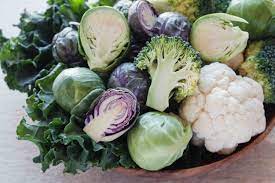
Cruciferous vegetables, such as broccoli, cauliflower, Brussels sprouts, and cabbage, are rich in sulfur-containing compounds that promote liver detoxification. These vegetables stimulate the production of enzymes in the liver that are responsible for breaking down and eliminating toxins from the body.
Cruciferous vegetables are also high in fiber, which helps improve digestion and supports the elimination of waste products from the liver. The antioxidants found in these vegetables, such as vitamin C and beta-carotene, help protect the liver from oxidative stress and support overall liver health.
12. Whole Grains
Whole grains, including oats, quinoa, brown rice, and barley, are an excellent source of fiber, B vitamins, and minerals that support liver health. The high fiber content in whole grains promotes proper digestion and helps eliminate toxins from the liver through bowel movements. B vitamins, such as folate and vitamin B6, play a key role in supporting liver function and metabolism.
Whole grains are also low in refined sugars and unhealthy fats, which can contribute to liver fat buildup and the development of fatty liver disease. Consuming whole grains instead of refined grains can help prevent liver diseases and promote overall liver health.
13. Water
While water isn’t a food, it is crucial for maintaining healthy liver function. Staying hydrated helps the liver flush out toxins more efficiently and supports the body’s natural detoxification processes. Water also helps maintain the balance of electrolytes in the body, which is important for liver health.
Drinking plenty of water throughout the day ensures that the liver receives the hydration it needs to function properly and prevents the buildup of toxins in the body.
A healthy liver is essential for overall well-being, and the foods you consume play a crucial role in maintaining liver health. A diet rich in fruits, vegetables, whole grains, healthy fats, and lean proteins can provide the necessary nutrients, antioxidants, and compounds to support liver detoxification, reduce inflammation, and protect the liver from damage. Incorporating foods like leafy greens, garlic, turmeric, citrus fruits, and green tea into your daily routine can help promote optimal liver function and prevent liver diseases.
In addition to a healthy diet, it is important to maintain a balanced lifestyle that includes regular physical activity, adequate hydration, and limiting the consumption of alcohol and processed foods. By prioritizing liver health through nutrition and healthy habits, you can support this vital organ and ensure that your body functions at its best for years to come.

